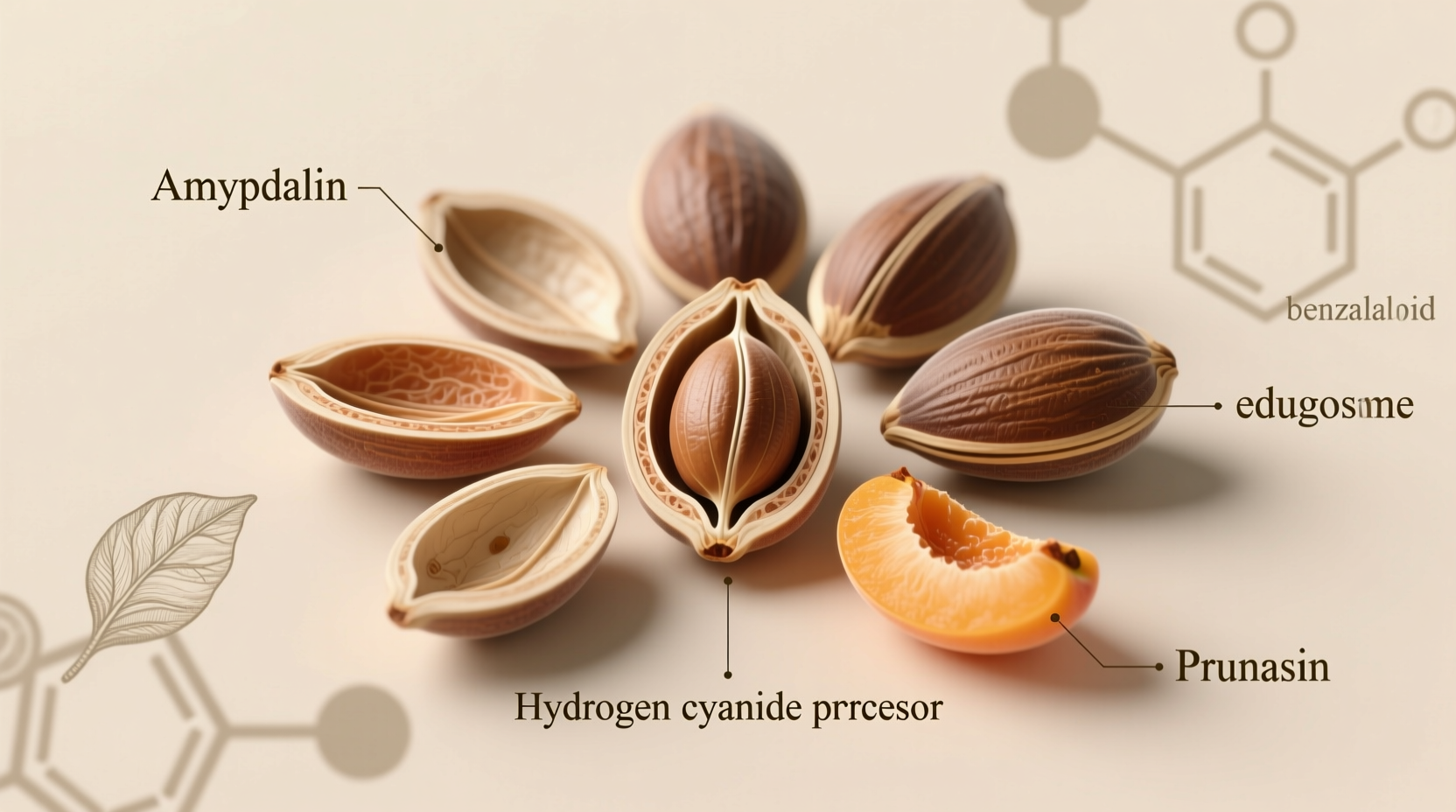The Truth About Apricot Seeds and Cancer Claims
For decades, apricot seeds have been promoted as a natural cancer treatment, but what does the scientific evidence actually say? This article examines the facts behind these claims, the potential dangers, and what reputable medical organizations recommend instead.
What Are Apricot Seeds and Why the Cancer Connection?
Apricot seeds, found inside the pit of apricot fruits, contain a compound called amygdalin. When digested, amygdalin breaks down into hydrogen cyanide—a toxic substance. In the 1950s, a processed form called laetrile was developed and promoted as an alternative cancer treatment.
Proponents claim that laetrile selectively targets cancer cells while leaving healthy cells intact. However, this mechanism has never been scientifically validated. The theory suggests that cancer cells contain higher levels of an enzyme that releases cyanide from laetrile, but research shows both healthy and cancerous cells contain similar enzyme levels.

Scientific Evidence: What Research Actually Shows
Multiple clinical trials and comprehensive reviews have examined laetrile's effectiveness against cancer:
| Study | Findings | Source |
|---|---|---|
| National Cancer Institute clinical trials (1980s) | No objective responses observed in 175 patients; some experienced cyanide toxicity | NCI |
| Comprehensive review (2015) | No evidence of efficacy; multiple cases of cyanide poisoning documented | Cochrane Database |
| European Medicines Agency assessment | Concluded laetrile has no therapeutic value for cancer treatment | EMA |
Timeline of Laetrile: From Promise to Proven Ineffective
The history of laetrile reveals a pattern of unfulfilled promises and documented dangers:
- 1950s: Ernst T. Krebs Jr. patents laetrile, claiming it as a "vitamin" (B17) despite no scientific basis for this classification
- 1970s: Laetrile gains popularity as alternative cancer treatment; clinics open in Mexico and the U.S.
- 1977: FDA bans interstate shipment of laetrile due to safety concerns and lack of evidence
- 1982: Mayo Clinic study finds no benefit in 178 patients; several developed cyanide poisoning
- 1990s-present: Continued promotion despite consistent negative research findings
- 2018: FDA issues warning about cyanide risk from apricot seeds
Real Dangers: Cyanide Poisoning from Apricot Seeds
The most significant risk of consuming apricot seeds is cyanide poisoning. Just 50 milligrams of cyanide can be lethal for adults. Each apricot seed contains 0.01-0.05 mg of cyanide per gram.
Symptoms of cyanide poisoning include:
- Nausea and vomiting
- Headache and dizziness
- Confusion and difficulty walking
- Rapid breathing and heart rate
- In severe cases: seizures, coma, and death
Children are particularly vulnerable. The European Food Safety Authority warns that just one or two apricot seeds can exceed safe cyanide levels for toddlers.
Why Do These Myths Persist Despite Scientific Evidence?
Several factors contribute to the ongoing belief in apricot seeds for cancer treatment:
- Anecdotal stories: Emotional testimonials often outweigh scientific evidence in public perception
- Mistrust of conventional medicine: Some patients seek alternatives due to frustration with traditional treatments
- Confirmation bias: People remember stories that confirm their beliefs while dismissing contradictory evidence
- Profit motive: Unscrupulous sellers continue to market apricot seeds despite warnings
Safe Alternatives: Evidence-Based Cancer Prevention Strategies
While apricot seeds aren't effective against cancer, research supports these evidence-based approaches:
- Diet rich in fruits and vegetables: Multiple studies link plant-based diets with reduced cancer risk
- Maintaining healthy weight: Obesity increases risk for 13 types of cancer
- Regular physical activity: Associated with lower risk of several cancers
- Avoiding tobacco: Prevents approximately 30% of cancer deaths
- Limited alcohol consumption: Even moderate drinking increases cancer risk
For cancer patients, evidence-based treatments include surgery, radiation, chemotherapy, immunotherapy, and targeted therapies—all developed through rigorous scientific testing.
When Apricot Seeds Might Be Safe (And When They're Not)
Context matters when considering apricot seed consumption:
- Small culinary amounts: Bitter almond extract (which contains similar compounds) is used in tiny quantities for flavoring in some traditional recipes
- Commercial apricot kernel oil: Properly processed for cosmetic use contains negligible amygdalin
- Therapeutic claims: Any product marketed for cancer treatment should be avoided
- High consumption: Eating multiple seeds daily, especially on an empty stomach, significantly increases cyanide risk
The European Food Safety Authority recommends adults consume no more than 1-2 small apricot seeds per day, and children should avoid them entirely.
What Reputable Medical Organizations Say
Major health authorities consistently warn against using apricot seeds for cancer treatment:
- American Cancer Society: "Available scientific evidence does not support claims that laetrile is effective in treating cancer."
- National Cancer Institute: "Laetrile has shown little anticancer activity in animal studies and no anticancer activity in human clinical trials."
- Food and Drug Administration: "Laetrile has not been shown to be safe or effective for treating cancer."
- World Health Organization: Classifies amygdalin-containing products as potentially dangerous due to cyanide content
Protecting Yourself from Misleading Cancer Claims
When evaluating any alternative cancer treatment, ask these critical questions:
- Is there peer-reviewed research published in reputable medical journals?
- Has the treatment been tested in controlled clinical trials?
- Do major cancer organizations endorse this treatment?
- Is the treatment being sold with dramatic cure claims?
- Does the provider discourage conventional treatments?
Be especially wary of treatments that:
- Claim to cure all types of cancer
- Promise results without side effects
- Are described as "suppressed" by the medical establishment
- Require large upfront payments











 浙公网安备
33010002000092号
浙公网安备
33010002000092号 浙B2-20120091-4
浙B2-20120091-4